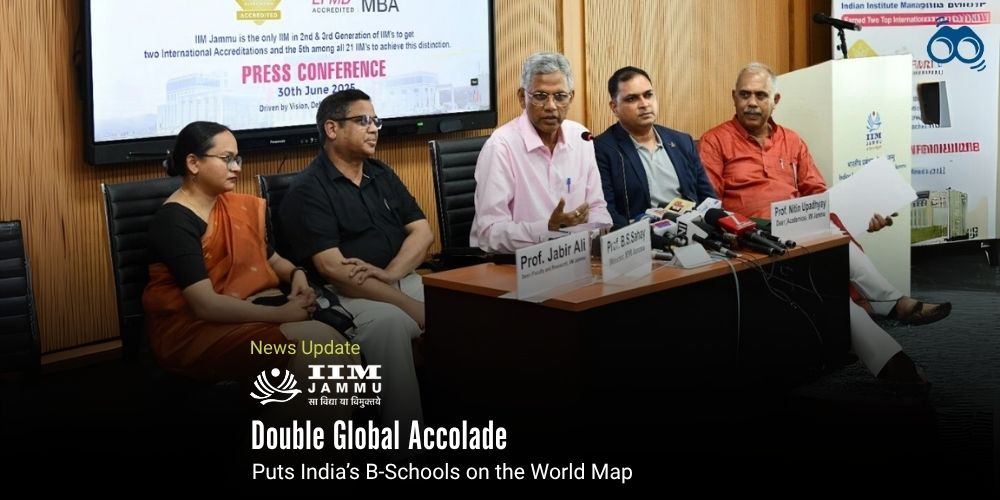Revamping Maths for the AI Era: UK Launches Bold Curriculum Overhaul
UK Universities Receive £2.5M to Reinvent Mathematics Education
In an era increasingly shaped by data, algorithms, and automation, mathematics has evolved into a cornerstone skill underpinning innovation across multiple sectors. STEM occupations are expected to grow by 8% between 2022 and 2032, far outpacing non-STEM roles. Amid this expansion, mathematics plays a crucial role in disciplines such as artificial intelligence, data science, financial modelling, and climate analysis. However, projections indicate a potential 20% decline in maths graduates between 2030 and 2035, raising alarm over a looming talent shortfall in key areas essential to the UK’s future growth and competitiveness.
To address this challenge, Imperial College London has secured a £500,000 grant through the Maths Degrees for the Future programme, an initiative launched by the Campaign for Mathematical Sciences. The programme is designed to modernise mathematics education by blending core theoretical knowledge with applied learning in emerging fields such as AI and data science.
Imperial plans to utilise the funding to strengthen both the computational and collaborative aspects of its degree programmes. This includes the integration of interactive tools for proof writing, providing students with deeper engagement in mathematical reasoning and contemporary research. Furthermore, part of the grant will support the introduction of new mathematics education modules, aimed at addressing the shortage of qualified maths teachers across the UK. This teacher shortage has been brought into sharp focus by the Wakeling report, published last year, which revealed that only 63% of maths teacher training spaces were filled in 2023–24—a trend expected to worsen. By investing in teacher training, Imperial aims to help fill this critical gap in the educational pipeline.
Commenting on the significance of the initiative, Professor Jens Marklof, Chair of the Campaign for Mathematical Sciences, emphasised that the programme was designed to equip the UK with the mathematical expertise needed for the future. He acknowledged both the predicted decline in graduates and the teacher shortage as systemic issues. Noting the high quality and volume of grant submissions, he expressed confidence in the institutions selected and looked forward to tracking their progress. Professor Ian Walmsley, Provost of Imperial College London, reaffirmed the central role of mathematics in driving the institution’s innovation in fields like quantum technologies and artificial intelligence. He noted that the funding would allow the university to broaden access to high-quality training, enabling more students to acquire the skills needed for impactful careers.
Adding to this, Professor Axel Gandy, Head of the Department of Mathematics, highlighted that mathematics is evolving rapidly, especially in tandem with developments in computing and AI. The grant, he stated, will support the redesign of curricula to include interactive proof systems, enhance collaboration, and develop an open-access resource library to benefit future researchers and educators in foundational mathematics. Alongside Imperial, other universities selected for funding include Cardiff University, King’s College London, the University of Nottingham, and The Open University, all of which will contribute to reshaping the future of mathematical sciences education in the UK.
Editor’s Note:
In an era increasingly defined by data, algorithms, and transformative technologies, mathematics has become not merely an academic discipline but a foundational pillar of progress. The Maths Degrees for the Future initiative represents more than a funding mechanism; it serves as a strategic framework for equipping the UK with the talent, innovation capacity, and academic strength needed to remain globally competitive. Imperial College London’s £500,000 grant stands as a testament to what can be achieved when visionary investment is directed towards core intellectual competencies. Mathematics underpins nearly every area of modern advancement—from breakthroughs in artificial intelligence and climate modelling to financial innovation and national cybersecurity. By updating teaching methods to include interactive proof systems, computational tools, and applied learning, the initiative ensures graduates are not only strong in theory but also equipped to tackle real-world challenges with confidence and precision. Equally important is the expanded range of opportunities this initiative offers students. As new sectors emerge, many future careers will require advanced mathematical skills in ways not yet fully imagined. Whether leading quantum research, developing ethical AI, or solving problems at the intersection of science and society, the next generation of mathematicians will help shape the future.
According to Skoobuzz, this initiative goes beyond redefining maths education, it expands what students can achieve. It marks a decisive move toward a future where mathematical insight is essential for solving the world’s most critical challenges.














0 Comments (Please Login To Continue)